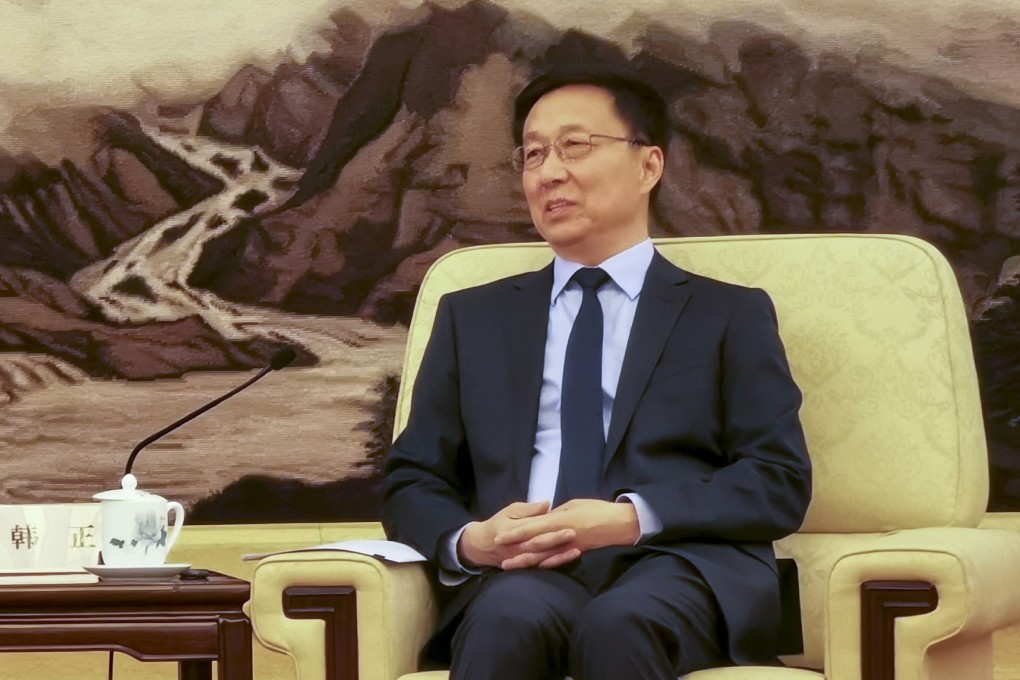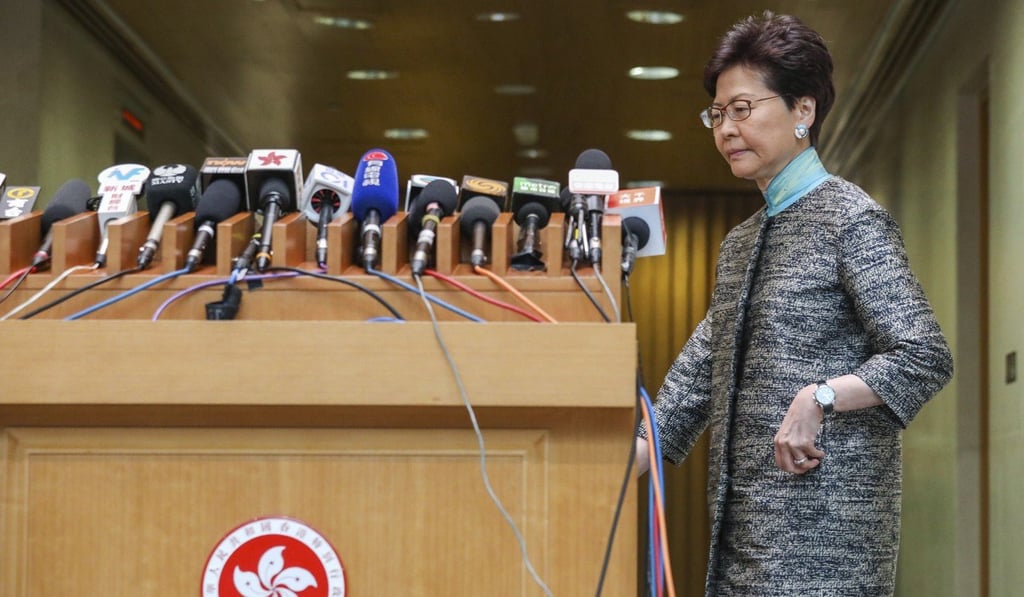Beijing declares full support for Hong Kong leader Carrie Lam over controversial extradition bill
- Han Zheng, China’s point man on Hong Kong and Macau affairs, says proposed amendments will help city to demonstrate rule of law and justice
- Vice-premier urges different sectors in Hong Kong to support bill

Beijing has issued a strong endorsement of Hong Kong’s leader over her controversial extradition bill, with Vice-Premier Han Zheng becoming the most senior Chinese official to weigh in and voice the central government’s full support for changing the city’s fugitive transfer law.
Han, China’s point man on Hong Kong and Macau affairs, on Tuesday said the bill being pushed by Chief Executive Carrie Lam Cheng Yuet-ngor’s government would help the city to demonstrate the rule of law and justice.
He also urged everyone in Hong Kong to support the amended legislation, which would allow the transfer of suspects to jurisdictions the city does not have an extradition deal with, including mainland China.
“All sectors have to work hard together to help Hong Kong build a good image in the aspect of the rule of law around the world,” he said.
